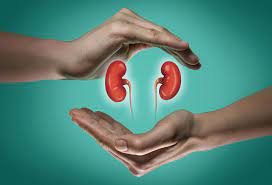
Breaking News
 Panic sets in as revealing map shows only SEVEN metro areas across the entire United States...
Panic sets in as revealing map shows only SEVEN metro areas across the entire United States...
 White House Amplifies Shocking Claims Of US Super Soldiers Deployed In Maduro Raid
White House Amplifies Shocking Claims Of US Super Soldiers Deployed In Maduro Raid
 Contrasting Chinese and US power plays in Venezuela and beyond
Contrasting Chinese and US power plays in Venezuela and beyond
 Why You Shouldn't Believe In A Full-Spectrum Crash
Why You Shouldn't Believe In A Full-Spectrum Crash
Top Tech News
 Superheat Unveils the H1: A Revolutionary Bitcoin-Mining Water Heater at CES 2026
Superheat Unveils the H1: A Revolutionary Bitcoin-Mining Water Heater at CES 2026
 World's most powerful hypergravity machine is 1,900X stronger than Earth
World's most powerful hypergravity machine is 1,900X stronger than Earth
 New battery idea gets lots of power out of unusual sulfur chemistry
New battery idea gets lots of power out of unusual sulfur chemistry
 Anti-Aging Drug Regrows Knee Cartilage in Major Breakthrough That Could End Knee Replacements
Anti-Aging Drug Regrows Knee Cartilage in Major Breakthrough That Could End Knee Replacements
 Scientists say recent advances in Quantum Entanglement...
Scientists say recent advances in Quantum Entanglement...
 Solid-State Batteries Are In 'Trailblazer' Mode. What's Holding Them Up?
Solid-State Batteries Are In 'Trailblazer' Mode. What's Holding Them Up?
 US Farmers Began Using Chemical Fertilizer After WW2. Comfrey Is a Natural Super Fertilizer
US Farmers Began Using Chemical Fertilizer After WW2. Comfrey Is a Natural Super Fertilizer
 Kawasaki's four-legged robot-horse vehicle is going into production
Kawasaki's four-legged robot-horse vehicle is going into production
 The First Production All-Solid-State Battery Is Here, And It Promises 5-Minute Charging
The First Production All-Solid-State Battery Is Here, And It Promises 5-Minute Charging
Healthy oral, gut and urinary bug network can smash kidney stones

"Kidney stone disease has been rising in recent years, affecting roughly 10% of people," says Jeremy Burton, from St. Joseph's Health Care London. "While previous research has shown a connection between the gut microbiome and kidney stones in those who have taken antibiotics, we also wanted to explore the connection to other microbiomes in the hopes we can advance understanding and potential treatments."
Using a specific genetic analysis technique, researchers from Lawson Health Research Institute and Western University scientists examined the microbe makeup of the three regions in 83 patients who had kidney stones, as well as those of 30 healthy people. What they found was that those with kidney stones had changes in not one but all three microbiomes. The patients with the formed kidney stones also had at least 90 days since taking antibiotics – which has previously been linked to stone prevalence.

 Storage doesn't get much cheaper than this
Storage doesn't get much cheaper than this

